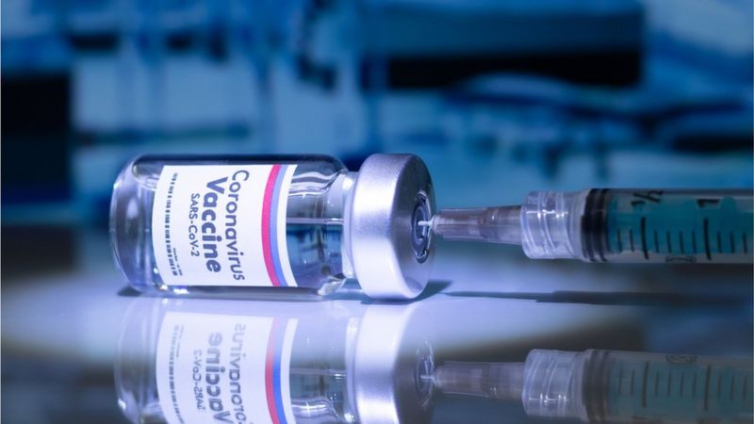As the race to find a safe and effective Covid-19 vaccine shows increasing promise, a new World Health Organization (WHO) analysis finds that Africa is far from ready for what will be the continent’s largest-ever immunisation drive.
All 47 countries in the WHO African Region have received WHO’s Vaccine Readiness Assessment Tool which is intended to be used by Ministries of Health, with support from WHO and UNICEF.
It provides a roadmap for countries to plan for Covid-19 vaccine introduction and covers 10 key areas: planning and coordination, resources and funding, vaccine regulations, service delivery, training and supervision, monitoring and evaluation, vaccine logistics, vaccine safety and surveillance and communications and community engagement.
Forty countries have updated the tool and provided data to WHO.
An analysis finds that based on the self-reports by the countries, the African region has an average score of 33% readiness for a Covid-19 vaccine roll-out, which is well below the desired benchmark of 80%.
“The largest immunization drive in Africa’s history is right around the corner, and African governments must urgently ramp up readiness. Planning and preparation will make or break this unprecedented endeavour, and we need active leadership and engagement from the highest levels of government with solid, comprehensive national coordination plans and systems put in place,” said Dr Matshidiso Moeti, WHO Regional Director for Africa.
WHO together with Gavi, the Vaccine Alliance, Coalition for Epidemic Preparedness Innovation and other partners is working to ensure equitable access to vaccines in Africa through the COVAX facility, the vaccines pillar of the WHO Access to Covid-19 Tools Accelerator.
When vaccines are licensed and approved, COVAX will work to secure enough doses to provide protection to an initial 20% of the African population.
However, the WHO analysis of the country readiness data finds that only 49% have identified the priority populations for vaccination and have plans in place to reach them, and 44% have coordination structures in place.
Only 24% have adequate plans for resources and funding, 17% have data collection and monitoring tools ready and just 12% have plans to communicate with communities to build trust and drive demand for immunization.
“Developing a safe and effective vaccine is just the first step in a successful rollout,” said Dr Moeti. “If communities are not onboard and convinced that a vaccine will protect their health, we will make little headway. It’s critical that countries reach out to communities and hear their concerns and give them a voice in the process.”
WHO estimates the cost of rolling out a Covid-19 vaccine on the African continent to priority populations will be around US$ 5.7 billion.
This does not include an additional 15% - 20% cost for injection materials and the delivery of vaccines, which require trained health workers, supply chain and logistics and community mobilization.
This cost is based on COVAX facility estimates of the average vaccine price at US$ 10.55 per dose and that a two-dose regimen will be needed.
WHO and partners recently released guidance on COVID-19 vaccination planning and deployment for national governments, aiming to help them design strategies for the deployment, implementation and monitoring of Covid-19 vaccines and better integrate their strategies and financing to boost efficiency.
Dr Moeti spoke during a virtual press conference today facilitated by APO Group.
She was joined by Professor Helen Rees, Executive Director, Wits Reproductive Health and HIV Institute at the University of the Witwatersrand, Chairperson, African Regional Immunization Technical Advisory Group (RITAG) and Chairperson of the South African Health Products Regulatory Authority.
Other speakers were Professor Pontiano Kaleebu, Director Uganda Virus Research Institute (UVRI) and MRC/UVRI and London School of Hygiene and Tropical Medicine Uganda Research Unit; and Professor Fredrick N Were, Perinatal & Neonatal Medicine, University of Nairobi and Chief Research Scientist, Kenya Paediatric Research Consortium.
Latest Stories
-
Civil Aviation Authority’s D-G dismissed, Stephen Wilfred Arthur takes over as acting head
2 minutes -
Speaker approves NIB’s request to meet 2 MPs, Mustapha Yussif and A Plus, to aid investigations
8 minutes -
Ghana’s $25bn agreement must deliver real benefits to vulnerable communities – CCCFS
13 minutes -
Police arrest 2 for transporting suspected stolen ECG cables in Central Region
18 minutes -
Ghana needs a Ministry of Common Sense – A Plus
19 minutes -
Don’t listen to NPP’s noise – A Plus on alleged drug trafficking flight claims
20 minutes -
‘Missing’ ECG containers may have been auctioned by GRA – Former ECG boss
26 minutes -
KATH renal unit undergoes transformation, dialysis machines increase from two to 20
56 minutes -
“It’s strange”- Former GPHA D-G questions alleged auctioning of ECG containers by GRA
1 hour -
‘We’re committed to bridging digital literacy skills gap’- ALX Country Manager
1 hour -
I don’t want any appointment, I’m only focused on my constituency – A Plus
1 hour -
ECG’s ‘missing’ containers can be found – Former GPHA D-G
1 hour -
Government to publish list of locally-made items for mandatory procurement by state agencies
2 hours -
Ghana’s Agri-Revolution: Solar-powered cold storage and PAYGO financing unlocks untapped potential
2 hours -
Latif Iddrisu vrs IGP & AG: State Attorney fails to show up again even after initial pledge
2 hours

